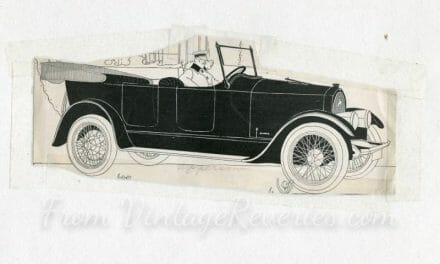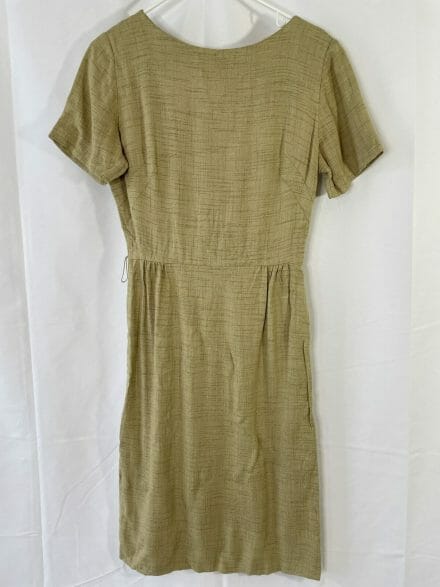
List of St. Louis Businesses in 1943

The St. Louis Municipal Opera’s 1943 Silver Anniversary program isn’t just a showcase of theater and performances; it also provides a fascinating glimpse into the city’s economic and business history during World War II. Among the music schedules, advertisements, and “Buy War Bonds” reminders, this souvenir program paid special homage to local businesses that had been serving St. Louis residents for decades—some for nearly a century! These pages highlight the resilience and longevity of businesses that thrived despite challenges over the years, including significant historical events like the Civil War, the Great Depression, and the ongoing global conflict of WWII.
The program featured small ads for local businesses that had been in existence for 50 years and 75 years or more as of 1943, making their origin dates fall between 1869 and 1894—or even earlier. Known for its robust industrial base, particularly in manufacturing and trade in the late 19th and early 20th centuries, St. Louis had long been one of America’s key economic hubs. The businesses highlighted here reflect this legacy, operating in industries such as hardware, tobacco, grain, furniture, art supply, and confectionery. Each company not only contributed to the local economy but also had a hand in shaping the social and cultural fabric of the city.
It’s worth reflecting on how these enterprises not only adapted during peacetime but also contributed to the war effort during WWII by supporting local communities and promoting patriotism, as seen in the consistent reminders to “Buy War Bonds.” From lumberyards to billiards supplies, from ice cream parlors to varnish producers, the diversity of these businesses paints a vivid picture of a bustling, thriving Midwestern city.
But first, the other ads and content on these pages included ads for:
- The Parkmoor Ice Cream
- The Municipal Opera Silver Anniversary Souvenir Program (this is apparently just the regular program)
- David Cafferata (on Delmar at Taylor)
- Municipal Opera On the Air on KMOX and CBS, Sundays at 1pm
St. Louis Businesses Operating for Over 75 Years (As of 1943)
These companies—established in 1868 or earlier—are true pillars of the St. Louis community and bore witness to transformative changes in the city’s history:
- Langan and Taylor General Van and Storage: Presumably a cornerstone in St. Louis logistics, this company likely played an essential role in supporting industry and individuals during the city’s rapid expansion after the Civil War.
- Gaines Hardwood Lumber Co: As hardwood was in high demand, especially for industrial and building purposes, this company would’ve supplied essential materials to the city’s booming construction and furniture trades for decades.
- South St. Louis Dairy Company: Dairy farming was a critical part of St. Louis’ food supply since its early frontier days, and this company must have played a key role in adapting to the requirements of growing urban populations.
- Prunty Seed & Grain Co: Agriculture being foundational to both Missouri’s and America’s economy in the 19th century, this firm contributed both to local farming efforts and the trade of goods beyond state lines.
- Robbins Varnish Company (94th year): With varnish essential to everything from manufacturing to furniture upkeep, this company’s longevity speaks to its contribution to both household needs and industrial-scale ventures.
- Speck Confectionary: Confectioneries weren’t just businesses—they offered comfort and joy in challenging times. Speck was surely a longtime favorite among St. Louis residents.
- A. Leschen & Sons Rope Co: Established in an era when river and rail commerce required strong rope materials, this company was integral to the city’s thriving logistics and industrial economy.
- Shapleigh Hardware Company (100th year): Marking a century in business, Shapleigh was a dominant supplier of tools and hardware, likely contributing to major development projects in the area.
- Weisert Brothers Tobacco: Tobacco was a cornerstone of the St. Louis economy for decades. As early as the 1850s, Missouri was already making a name for itself as a hub for tobacco production and trade.
- Huntleth Music Co: This company illustrated the vibrancy of the arts scene in St. Louis through its supply of musical instruments and sheet music, supporting both performance and education.
- E.E. Souther Iron Co: With iron manufacturing crucial to the development of railroads and buildings, this company represents the heavy industry that helped St. Louis thrive.
- Dacy & Company Inc
- Vane-Calvert Paint Co: Paint was essential in industrial and residential growth, and St. Louis was a hub for innovation in such materials.
- A. E. Schmidt Co (billiards, bar, and bowling supplies): Reflecting both the city’s recreational culture and its industrial capability.
- Christian Peper Tobacco Co (since 1852): Another robust player in the 19th-century tobacco boom, contributing to Missouri’s economy.
- Chas Wunderlich Cooperage Co: With barrels forming an indispensable part of the trade and storage industries in the 1800s and early 1900s, this cooperage undoubtedly played a foundational role.
- Lindenwood College (founded in 1827): One of the oldest higher education institutions west of the Mississippi River, Lindenwood College (now Lindenwood University) was already deeply rooted in shaping educated citizens.
- Witte Hardware Co (since 1849): Supplying the vital tools and hardware necessary for the city’s development at every stage.
- Frank’s (specializing in art needlework): Reflecting not just industry but artistry, this shop catered to creative pursuits spanning decades.
- Levison & Blythe Manufacturing Company (since 1852)
- Canvas Products Company
St. Louis Businesses Operating for Over 50 Years (As of 1943)
Businesses founded between 1869 and 1894 still played a significant role in shaping 20th-century St. Louis:
- Knollman Company
- New Era Shirt Company (56 years of successful shirt making): This business reflects advancements in textile production and consumer fashion tastes during the late 19th century.
- S. N. Long Warehouse: Warehousing has always been crucial to St. Louis as a trading hub, situated at the crossroads of railway, river, and highway systems.
- Getz Inc. (established 1888)
- Moler College (1893): A beauty college that reflects broader shifts toward vocational education and niche training programs in the rapidly modernizing 20th century.
- Potter Electrical Signal and Manufacturing Co: Early signals were vital for safety in rail and other transit systems, making Potter a likely innovator in this space.
When we step back, these businesses not only speak to the entrepreneurial spirit of St. Louis but also to the pragmatism and resourcefulness of its citizens throughout turbulent periods of history. Each company tells its own story of survival and evolution in a city that weathered immense changes in industry, economy, and society.
This glimpse into the businesses of 1943 also invites the question: How many of these businesses are still in operation today? Some may have folded, others may have adapted, and yet others may still stand as testaments to a changing yet resilient city. For lovers of local history, economic development, and ephemera, the Municipal Opera’s Silver Anniversary program is a treasured snapshot of that moment in time.





















You must be logged in to post a comment.